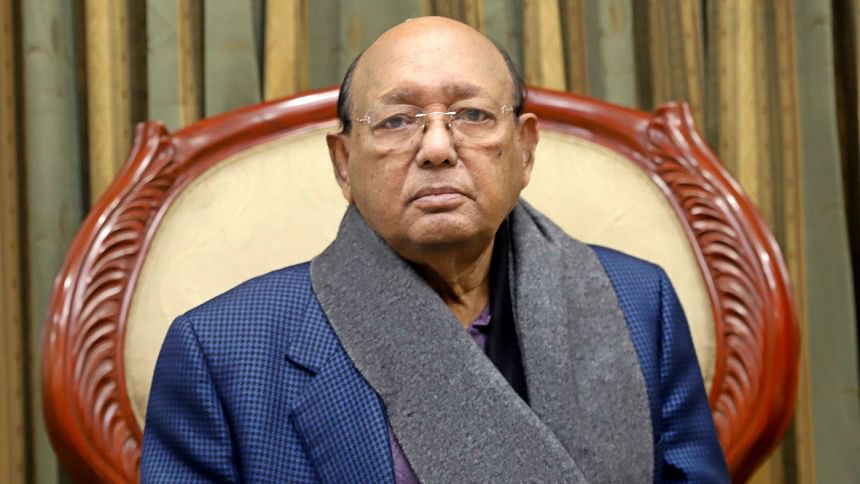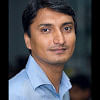‘Mass uprising was a dress rehearsal for our brightest achievements’

January 24 is observed as the Mass Uprising Day. On this day in 1969, young school student Matiur Rahman and a rickshaw puller were shot down by police on the streets of Dhaka, giving further momentum to the movement to remove the Ayub Khan regime from power. In this interview with Badiuzzaman Bay and Partha Pratim Bhattacharjee of The Daily Star, senior Awami League leader and MP Tofail Ahmed, one of the organisers of the movement, takes a trip down memory lane to reflect on the significance of this occasion in the history of our independence struggle.
How do you recall what happened on this day and in the days before and after that?
I feel at once pained, because of all the sacrifices that went into making our independence struggle successful, and extremely proud, because of what we achieved in the end. In hindsight, it was—all of it—worth it. For me, personally, those were the golden days of my life. I still vividly remember the events that led to this moment and what happened afterwards.
On January 5 in 1969, four student organisations came together and formed an alliance called Sarbadaliya Chhatra Sangram Parishad (All-Party Student Action Committee) which pushed forward a charter of eleven demands. A successor to the 1966 Six-Point Movement led by Bangabandhu Sheikh Mujibur Rahman, the charter basically called for wider reforms and the resignation of Ayub Khan. I also recall the proponents of the Eleven-Point Programme, each of them well-known student leaders, and I, as VP of DUCSU, served as coordinator and spokesman for the Chhatra Sangram Parishad. On January 17, the Parishad held a meeting at Dhaka University. It was the first gathering after the formulation of the Eleven-Point Programme.
Subsequent events, both on that day and in the days since, seemed to occur at a dizzying pace as our movement gathered momentum with wider support and participation from the public across the country. People came out on the streets in defiance of the marauding police forces. Their demand for the release from prison of Bangabandhu, the main accused in the Agartala Conspiracy Case, rang louder and louder every passing day. Blood was shed, curfews imposed and broken.
I remember how students came out on the streets on January 17 defying threats of arrests and police brutalities. I remember how we returned to the streets the following day and the day next, in greater number every time. I remember how Amanullah Mohammad Asaduzzaman, a leader of the East Pakistan Students' Union, was killed by police on January 20 when students and the general public came out in support of our cause. I remember how the seething rage over Asad's death erupted—the strikes, the waves of protests, the deafening slogans. The desperate pushback by police and armed forces and the unholy alliance of baton charge and tear gas. I remember the torchlight processions mourning for Asad and other martyrs, the unforgettable moments of January 24 that saw the death of school student Matiur Rahman, and how it gave a further thrust to our movement. I remember the steely determination of his parents who wouldn't let the sacrifice of their son go in vain.
Students, especially those at Dhaka University, were clearly at the centre of the mass uprising in 1969. As someone who was closely involved with all the planning and execution, how do you evaluate their role?
Students were at the centre of our independence struggle. In 1969, the whole country was under the de facto control of the Sarbadaliya Chhatra Sangram Parishad in Dhaka University. For example, government officials would take important decisions in consultation with the Sangram Parishad. Students would dictate the closure of all institutions. Even a team from MCC, England sought and obtained their permission to play a cricket match at the stadium in Paltan. Students, in short, played a prominent role not just during the tumultuous days of 1969, but also in all important movements leading to this moment including the 1952 language movement, the 1962 education movement, the 1966 Six-Point Movement, etc. It was a heyday for student politics, and students remained steadfast in their fight for self-determination. It was also because of the student-led movement that Bangabandhu was finally freed on February 22, 1969, and they were the ones who honoured him with the title of "Bangabandhu" in front of a million people at the Suhrawardy Udyan on February 23.
How do you view the historic significance of the mass uprising?
The significance of the mass uprising in the history of our independence struggle cannot be overstated. Even though it formed spontaneously—which was quite extraordinary for a time when there were no mobile phones, TV or social media that could be used for mass mobilisation—it was not a one-off event, rather the culmination of a series of events taking place over the past two decades. I sometimes wonder if the Agartala case—or State of Pakistan vs Sheikh Mujibur Rahman and others, as it was called officially—would have ensued if Bangabandhu hadn't initiated the Six-Point Movement; or if the nationwide mass uprising which pivoted around the demand for the release of Bangabandhu and other accused would have happened if the sedition case hadn't been brought by the Pakistani government in 1968. Also, the historic 1970 general election, based on the one-head-one-vote principle, wouldn't have happened if the mass uprising hadn't brought the Bengali resolve for autonomy front and centre. And if we hadn't won an absolute majority in that election, our independence war would have been viewed as merely a separatist movement by the international community.
It's important to understand the connection among these events. The journey from six demands to eleven demands and finally to one demand (that of sovereignty) should be seen as a natural progression toward a common goal—and every movement that we waged pushed us one step closer to that goal.
Is there a particular moment from the days of the mass uprising that symbolised for you the true spirit of this spontaneously formed movement?
There were many such moments and no dearth of inspirations for those who joined it, but one thing related to January 24 deserves particular mention: the reaction of the parents of Matiur Rahman. After Matiur Rahman's death along with others' in the hands of police, his mother said, with tears in her eyes, "I have no regrets about losing my son. But his blood [sacrifice] must not go in vain." And it didn't. That movement which was tainted with the blood of Matiur, Asad and other martyrs went on to ensure the release of Bangabandhu and all other accused from prison, the voting rights for all adults, the thumping election victory in 1970, and finally the independence of our country. In a way, the mass uprising was a dress rehearsal for the good that was about to follow in the future.


 For all latest news, follow The Daily Star's Google News channel.
For all latest news, follow The Daily Star's Google News channel. 



Comments